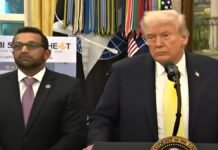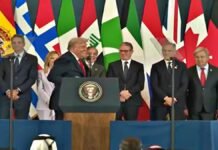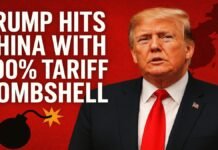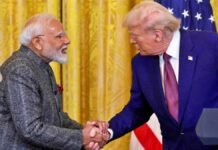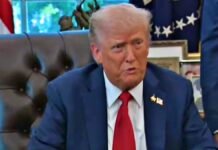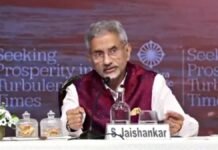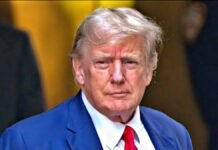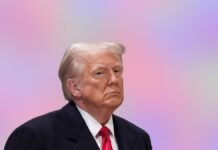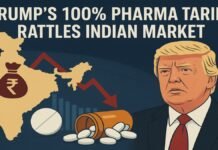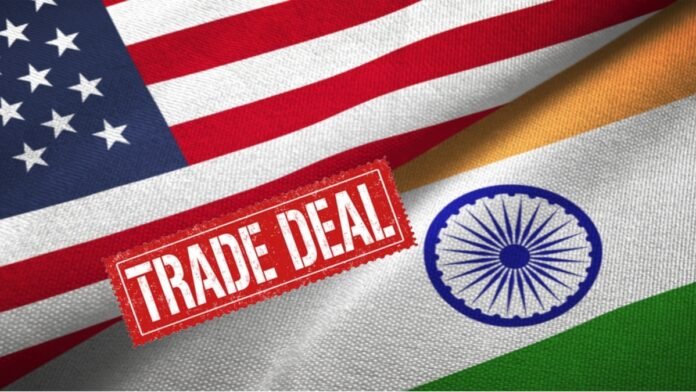
Key Points
- A high-level US delegation met with Indian officials in New Delhi to resume negotiations for a bilateral trade deal.
- The meeting, which lasted nearly seven hours, focused on resolving long-standing issues and finalizing the agreement as soon as possible.
- Major sticking points include US demands for market access for its dairy products and India’s concerns over protecting its farmers and religious sentiments.
- Despite trade frictions, both nations aim to increase bilateral trade from the current $191 billion to $500 billion by 2030.
New Delhi: India and the United States have decided to intensify efforts to finalize a long-pending trade deal, with a US delegation arriving in New Delhi for the first time since talks stalled. Following a marathon seven-hour meeting, India’s Commerce Ministry stated that both sides held positive discussions on various aspects of the trade agreement and are committed to reaching a mutually beneficial outcome that strengthens their economic relationship.
The talks were led by Brendan Lynch, Chief Negotiator of the US Trade Representative’s Office, and Rajesh Agarwal, Special Secretary of India’s Commerce Department. Both officials acknowledged the critical importance of the India-US trade relationship and the need to resolve outstanding issues swiftly.
Key Hurdles in the Agreement
While the tone of the meeting was optimistic, significant challenges remain. A primary demand from the United States is greater market access for its agricultural goods, particularly dairy products like milk, cheese, and ghee. This issue is highly sensitive for India.
- Protecting Local Farmers: India is the world’s largest milk producer, and the dairy industry supports millions of small farmers. The Indian government fears that allowing imports of American dairy products could severely impact the livelihoods of these farmers.
- Religious and Cultural Sentiments: A unique cultural issue complicates the matter. In the US, cattle feed often includes animal-derived enzymes, such as rennet from animal bones, to improve nutrition. India considers milk from such cows to be “non-vegetarian” and thus unacceptable to a large segment of its population on religious grounds.
Background of Trade Tensions
The path to a trade deal has been fraught with challenges. The sixth round of formal talks, originally scheduled for August 25-29, was postponed after trade frictions escalated, including US tariffs on certain Indian goods. The current meeting signals a renewed political will to move past these disputes. However, a new date for the formal sixth round of negotiations has not yet been decided.
Despite these hurdles, the economic partnership continues to grow. India and the US have set an ambitious target to increase their bilateral trade from $191 billion to $500 billion by 2030. Recent data from the Commerce Ministry shows a positive trend, with India’s exports to the US growing by 21.64% to $33.53 billion during the April-July 2025 period, while imports rose by 12.33% to $17.41 billion.









